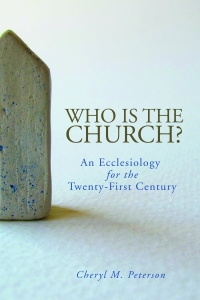 I’m excited to get my hands on a copy of a new book coming out soon by my friend and colleague Rev. Dr. Cheryl M. Peterson. Cheryl teaches at Trinity Lutheran Seminary in Columbus, Ohio, and is one of the best connecters-of-people I have ever hung out with. Really, if you ever get a chance to go to a reception with Cheryl, she will know which other people in that room you should get to know, and she will make sure to introduce you in some detail.
I’m excited to get my hands on a copy of a new book coming out soon by my friend and colleague Rev. Dr. Cheryl M. Peterson. Cheryl teaches at Trinity Lutheran Seminary in Columbus, Ohio, and is one of the best connecters-of-people I have ever hung out with. Really, if you ever get a chance to go to a reception with Cheryl, she will know which other people in that room you should get to know, and she will make sure to introduce you in some detail.
Maybe more importantly, she was one of the collaborative partners contributing to Transformative Lutheran Theologies, which I’ve written about before, and she now expands her work thinking creatively and constructively about what it means to be ‘church’ in Who Is The Church? An Ecclesiology for the Twenty-First Century.
A few words from the publisher’s website:
Many congregations today are beset by fears, whether over loss of members and money, or of irrelevancy in an increasingly pluralistic society. To counter this, many congregations focus on strategy and purpose—what churches ‘do’—but Cheryl Peterson submits that mainline churches need to focus instead on ‘what’ or ‘who’ they are—to reclaim a theological, rather than sociological, understanding of themselves.
To do this, she places the questions of the church’s identity and mission into a conversation with the primary ecclesiological paradigms of the past century: the neo-Reformation concept of the church as a ‘word event’ and the ecumenical paradigms of the church as ‘communion.’ She argues that these two paradigms assume a context of cultural Christendom that no longer exists—focused on the church that is gathered—rather than the missional church that is sent out.
Peterson suggests instead that we understand the church as a people created by the Spirit to be a community, and that we must claim a narrative method to explore the church’s identity—specifically, the story of the church’s origin in the Acts of the Apostles. Finally, here is a way of thinking of church that reconciles the best of competing models of church for the future of mainline Protestant theology.
For any of you who think about church and/or work in a church context, you can get your copy here or here.
Author note: ‘Honorable Mention’ is a recurring feature on this blog … a quick mention/shout-out to someone or something worth noting.












